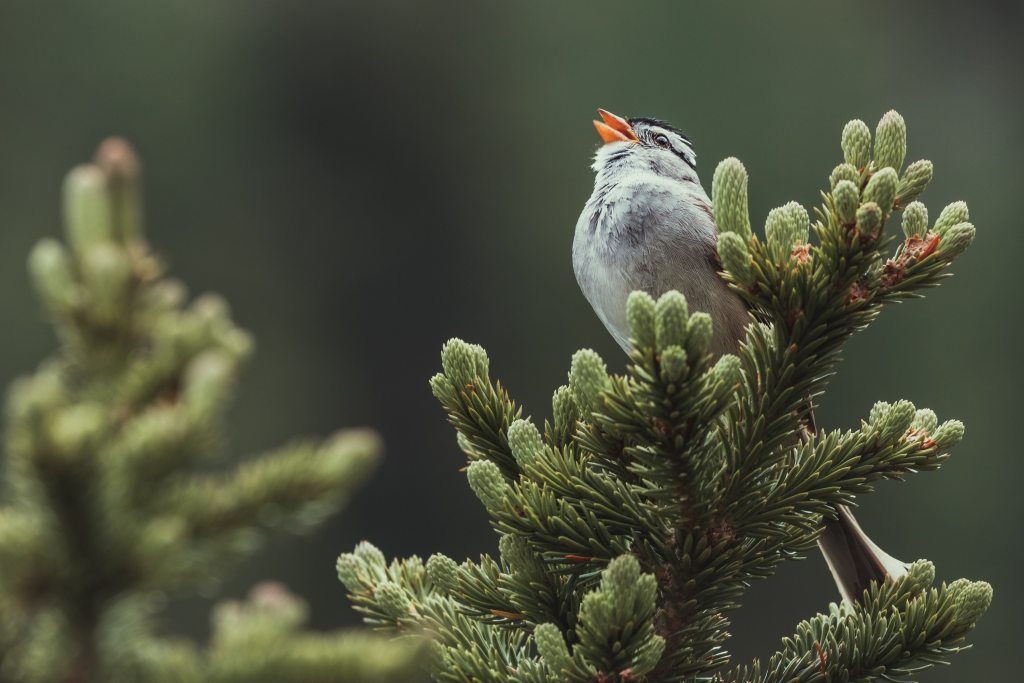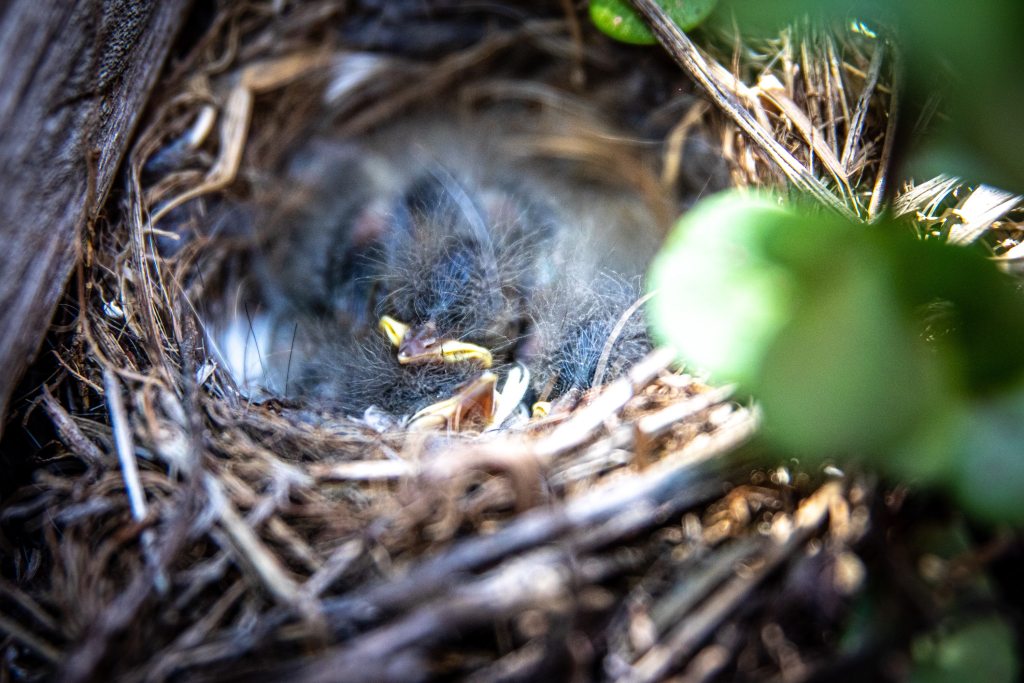Who doesn’t want to wake up to the playful chatter of birds in your neighborhood? While we admit it might start a little too early on the weekends, catching the famous dawn chorus will brighten the start of your day, and it has many benefits for the singers as well. Avians sing for a few reasons and they give their best and loudest performances in the early morning for strategic reasons.
Of course, you might hear the occasional soloist at any old time. But if you want the best show, look for that classic AM serenade coming from your yard. But why do birds sing in the morning? There are a few reasons for this, but here are the main ones.

Why do birds sing?
While we all gain something from gorgeous birdsong, these flyers aren’t crooning for our benefit. They evolved this ability about 66 million years ago, based on fossil evidence, and have perfected their tunes ever since. As All About Birds explains, they mostly sing “to defend and impress.”
They want to attract a mate
We’ve heard and likely seen the routine that male birds go through to attract the eyes of the coolest lady bird around. This is also why in many species, the males are so gorgeous and the females relatively plain. Even though looking hot puts them at a disadvantage when it comes to predators (we’ll touch on this more later), it’s worth it if they get to mate with a female. To go along with the good looks, birds have developed song and dance routines, fine-tuned over millions of years. So you hear their songs in the spring and summer, most particularly from March to July, but you might notice a note or two anytime.
They’re protecting their young
Once the animals have partnered up, along comes baby — and the need to protect them. Often when males sing, they’re reminding anyone nearby that they own this land and all others need to stay away. Though typically they’re attempting to intimidate rivals, it may also ward off predators by proving they are strong and healthy and therefore not a good target for a meal.

Why does this happen in the morning?
Still, none of that explains why these majestic creatures choose to get up at the crack of dawn (literally) to call in the day. As mentioned, they select this time very strategically and hardly sing at other hours. There are two main reasons: this is the safest and slowest time for them.
It’s when they feel most secure
Early mornings might not feel any safer to you, but to small birds it really is. There are lots of carnivores around, and the early morning allows something of a reprieve from constantly being on alert. That’s why you’ll get an extra melody just before and right after the sun comes up. Because these little guys are so brightly colored, darkness gives them an easy escape from being spotted, allowing them a chance to yodel to their heart’s content. Then they try to stay quiet during the day to keep their presence and their nests hidden.
There’s not much else to do
Unlike bats, little birdies don’t have any way to see in the dark. Except for a few nocturnal species, many of whom are predators themselves, songbirds do not have good night vision at all. So while they spend many hours per day foraging for delicious food, dusk and dawn are mostly off-limits. Without much else to do in the way of survival, it gives them a chance to burst into song. There’s another piece of this too: singing first thing in the morning, when they’re tired and hungry, proves to everyone around that they are strong and mighty. And the ladies take notice. No one could doubt their eligibility as a breadwinner afterward.
If you’ve ever been woken up by a full-on symphony of cheeping, you may wish you could just turn the birds off with a switch. However, they need this time to find their future mates and bring us the next generation of feathered friends. Drink it all in and experience the production now and then. You’ll get the best seats by quietly sneaking into a forest where the birds feel even safer (this time from humans) and will let their sound carry.



